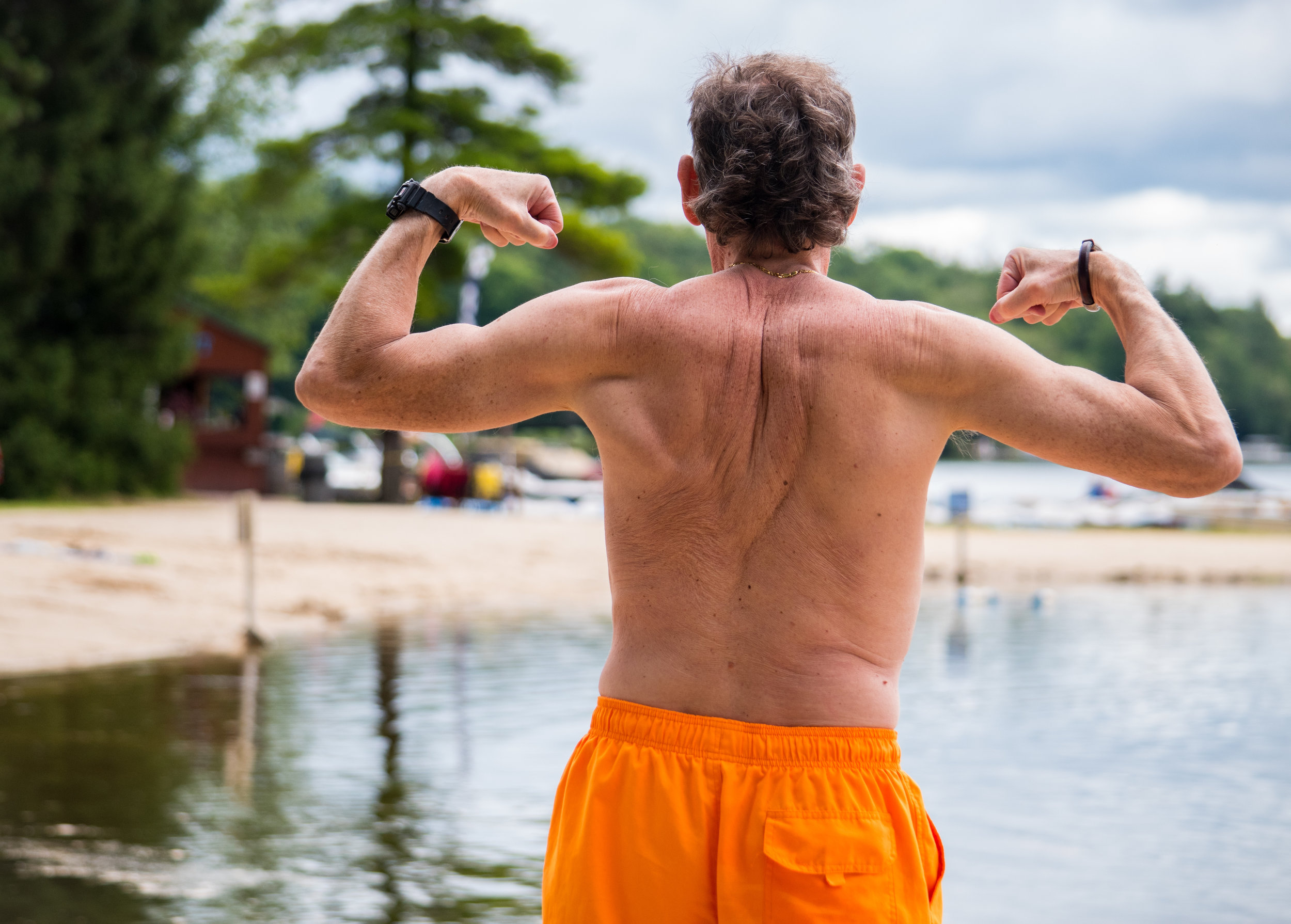“By delivering graded low impact exercise such as light weights, hydrotherapy or water-based exercises as well as yoga, Pilates and walking we can assist in improving blood flow and drainage in built up adipose tissue. A graded exercise program in conjunction with compression bandages or garments and massage which both work together to encourage the flow of fluid though the body. Exercise physiologists are not only trained in the delivering a structured program for both these conditions but can also assist with pain management and emotional support ‘
What if every breath was a challenge?
Those of us with healthy hearts and lungs we struggle to understand the difficulties of those living with a chronic cardiopulmonary concerns. The condition known as Chronic Obstructive Pulmonary Disease (COPD) or emphysema, can be a debilitating illness that makes breathing incredibly difficult and the thought of physical tasks a cause for anxiety.
Tougher than nails
when we think about toughness you might be surprised to learn just how tough your body actually is. Did you know that it actually takes pressure of more than 250kg per square centimetre to deform connective tissue like the plantar fascia or the iliotibial band by just 1%. To lengthen connective tissue like fascia its been found that it takes a force greater than 4515 Newtons or 460kg to create just 1% change. This means that your body is actually really tough! But why then do we hurt?
Pregnancy back pain? This answer will move you
More than a third of all women will experience back pain during their pregnancy. Whilst many a mother might attest to this experience as being normal, few things are able to provide comfort for women is experiencing pain. Of greater concern is that 20% of these women continue to have back pain well after giving birth
Exercise Physi-what?
I hear it all the time. It’s not easy being in one of the smaller health professionals, particularly when you get confused with a bunch of stuff you’re not. And I don’t blame people for the confusion. The health marketplace is crowded and us exercise physiologists are regularly confused with kinesiologists, physiotherapists and even psychologists. So what do we actually do? Glad you asked.
The new standard in treating depression.
The great advances we’ve made in treating mental health can’t be understated. From simply being able to talk about depression and mental illness to having increased access to mental health services like psychology and counselling, mental health is being treated better than ever. However, there’s one area of treating depression that we must do better with. Using an exercise-based component to treating depression has substantial proven outcomes and helps to keep the body in mind when we’re treating mental health. Better still, exercise-based treatment for depression has been proven to prevent relapse. Yet the majority of those with a mental illness will not be personally prescribed exercise, nor referred to the key health professional for physical approaches to mental illness – the exercise physiologist.
Q & A: “I don’t feel safe on my feet. My balance seems to be gone and I feel like I will fall, what’s happening to me?”
Experiencing a fall or a loss of balance can be scary, especially when it’s unexpected. It can make us feel afraid and can restrict us from doing certain activities in our daily life. But a life with restrictions on mobility impact independence, self-confidence and how we feel about ourselves. The good news is that balance is not a fixed and unchangeable feature of our physical self. If you have a sense that you’ve lost some of or all of your ability for balance, this is always something we can take steps to improve. The trouble is that most people don’t. If we want to living life without restrictions, prevent falls in the future and feel safe on your feet, rehabilitating your balance is the best thing you could do. So how do we do it?









